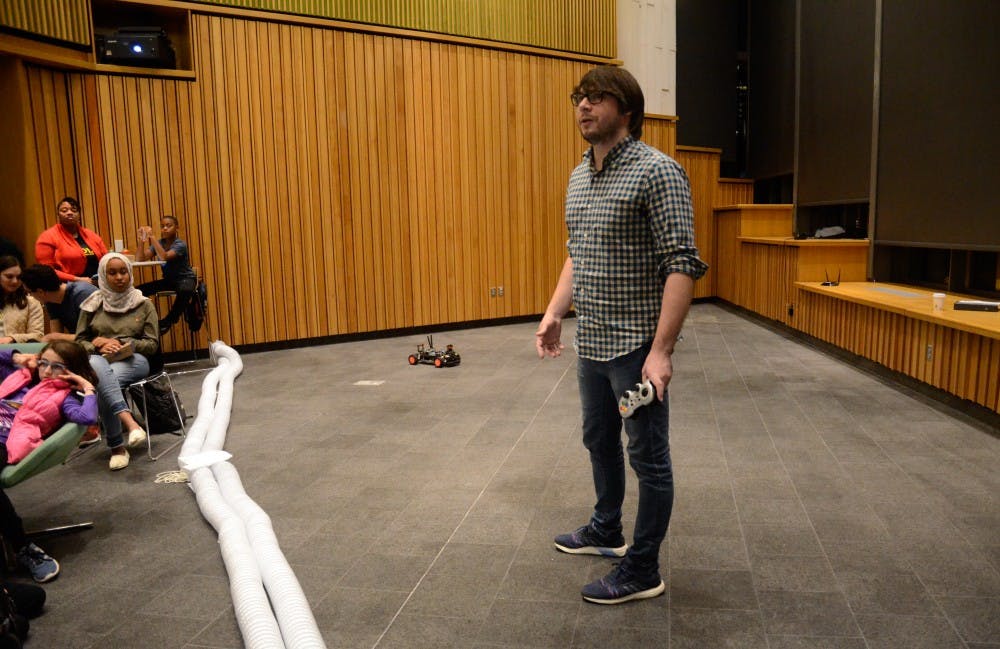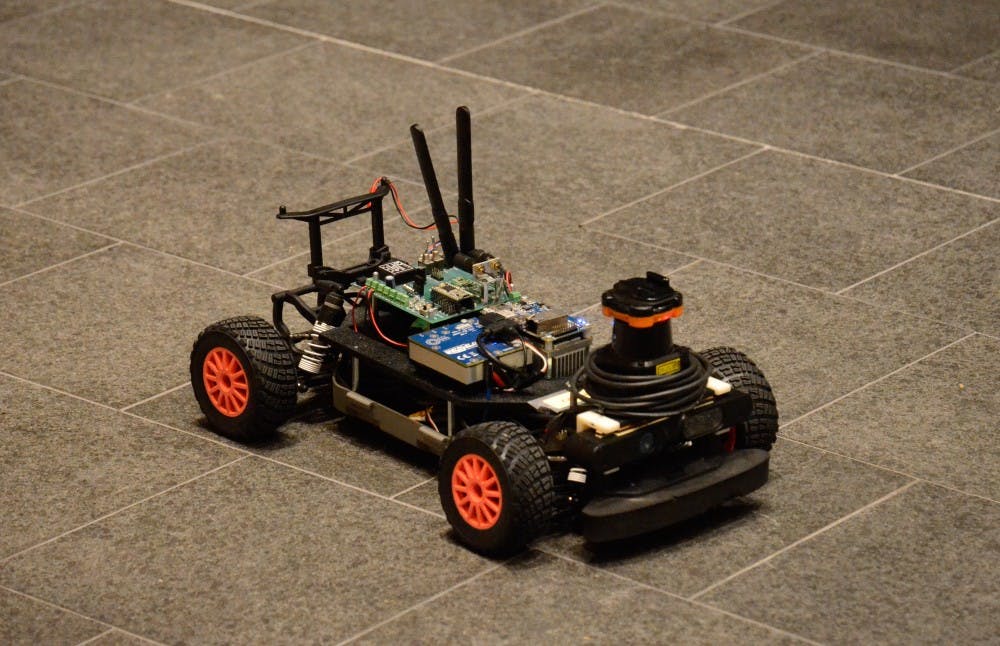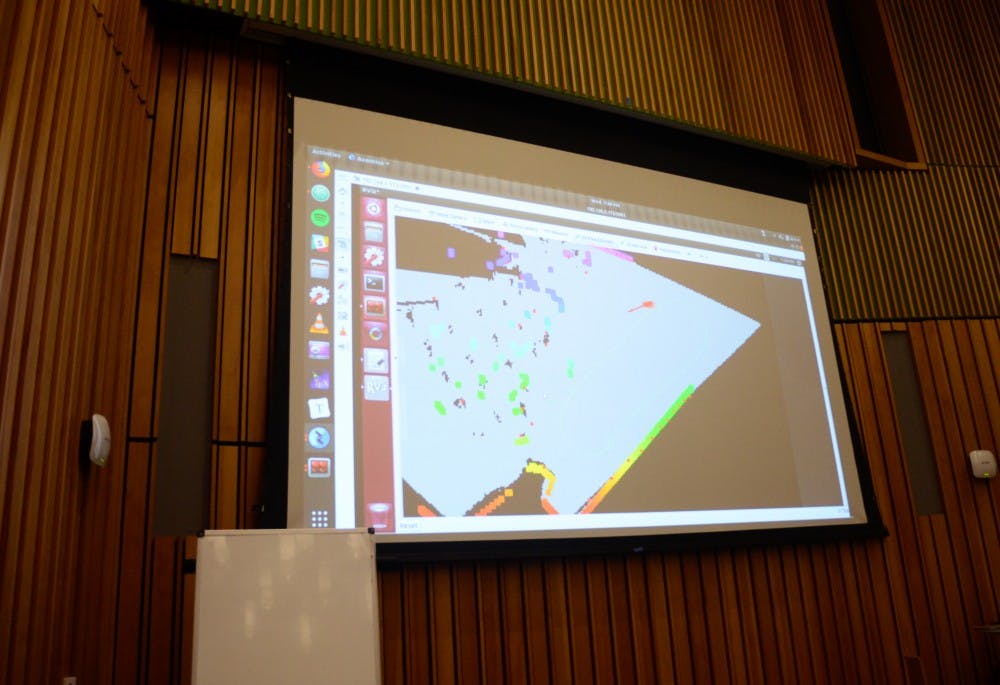
On Wednesday night, students across the Penn community watched a self-driving car fly through a racetrack in the New College House Dining Pavilion.
They were attending the F1/10 Autonomous Racing demonstration, an initiative that encourages students to explore self-driving vehicles by developing a F1 race car at 1/10th of its regular scale. The event, co-organized by campus groups Science and Technology Wing and Penn Women in Computer Science, was anchored by Penn Engineering professor Rahul Mangharam, who serves as director of Mobility21, a joint initiative with Carnegie Mellon University and the U.S. Department of Transportation to increase road safety and mobility.
“The goal of our work is to design safe, autonomous systems,” Mangharam said.
In an effort to expand knowledge on autonomous vehicles, Mangharam created the F1/10 Autonomous Racing Competition in 2016 with the intention of creating a “department of autonomy" on campus.
“The department of autonomy is all about how we work with real world data, and how we make decisions that are safe, fair, and affordable,” Mangharam said. “That is a combination of computer science, electrical engineering, and ethics.”
With the mantra “1/10 the size, 10x the fun,” F1/10 provides a series of online courses and videos so that any team can build and race an autonomous race cars on a small scale. Mangharam led the Penn team in an F1/10 race in Porto, Portugal in April, one of two global competitions that take place every year.
F1/10 enables students to work directly with the hardware that goes into building autonomous vehicles, without the constraints and safety restrictions of driving on an actual road, organizers said. Mangharam hopes to learn about the most risky driving conditions through racing the vehicles, and use this to improve new self-driving vehicles that are starting to go on the roads.
In order to minimize the risk of self-driving cars, Mangharam developed a “search engine,” called the Guardian Angel Problem, to virtually test cars on millions of miles of roads in order to identify and fix the riskiest situations in an efficient and scalable manner.
“It was really interesting to see the kinds of modeling techniques they used to determine how the car should behave in an environment,” Engineering sophomore Pranav Panganamamula said. “[The F1/10 cars are] obviously on a smaller scale, but doing this kind of research paves the way for more advanced autonomous driving for the future.”

Engineering sophomore Aditya Hota, who serves as the Global Press Manager of the STWING residential program, said he hopes that Mangharam’s initiatives will help familiarize Penn students with “the kinds of research that goes into developing some things that we might not think about, like car autopilot features and medical devices that deal with our safety and security.”
To make autonomous vehicle research more accessible, Mangharam has launched a course on F1/10 this semester and intends to continue it every fall semester in the coming years. He also has plans to form an F1/10 club where students will compete to build the smartest autonomous driver.

The Daily Pennsylvanian is an independent, student-run newspaper. Please consider making a donation to support the coverage that shapes the University. Your generosity ensures a future of strong journalism at Penn.
Donate







